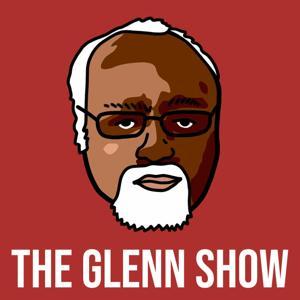On this episode, Chris Coyne speaks with Brigitta Jones, Nathan Goodman, and Karla Segovia about Kenneth Boulding’s insights on war, peace, and the political economy of conflict applied to contemporary questions about military organization and the dynamics of civil conflict.
First, Jones discusses her coauthored paper with Coyne, “The Political Economy of Milorg,” which uses Boulding’s concept of Milorg to examine the entanglement of public agencies and private firms in the military sector. She highlights how knowledge problems, incentives, and political processes shape what the military produces and how those decisions affect the broader economy.
Goodman and Segovia then join Coyne to discuss their paper, “Unstable Peace in El Salvador,” coauthored with Abby Hall. Drawing on Boulding’s framework, they examine how shifting expectations, beliefs, and “taboo lines” eroded the country’s fragile peace, highlighting how strains such as land concentration, poverty, repression, and escalating violence contributed to the outbreak of civil war.
Together, these conversations illustrate how Boulding’s insights illuminate both the functioning of the modern military-industrial landscape and the complex processes through which societies move between peace and war.
This is the third episode in a short series of episodes that will feature a collection of authors who contributed to the volume 1, issue 2 of the Markets & Society Journal or to a forthcoming special issue from The Review of Austrian Economics.
Brigitta Jones is a PhD student in Economics at George Mason University. Her research interests include the welfare state of the United States.
Dr. Nathan P. Goodman is a Senior Research Fellow and Senior Fellow with the F.A. Hayek Program for Advanced Study in Philosophy, Politics, and Economics at the Mercatus Center at George Mason University. His research broadly focuses on political economy, public choice, market process economics, New Institutional Economics, and defense economics.
Dr. Karla Segovia is a program manager for Research & Programs and a Research Fellow with the F.A. Hayek Program for Advanced Study in Philosophy, Politics, and Economics at the Mercatus Center at George Mason University, where she works on the Markets & Society conference and journal. She is also an adjunct professor at Northern Virginia Community College.
Show Notes:
- Kenneth Boulding’s book, Stable Peace (University of Texas Press, 1978)
- Kenneth Boulding’s book, The Image: Knowledge in Life and Society (University of Michigan Press, 1956).
- U.S. Congressional Testimony by Kenneth Boulding (1969)
**This episode was recorded October 27, 2025.
If you like the show, please subscribe, leave a 5-star review, and tell others about the show! We're available on Apple Podcasts, Spotify, Amazon Music, and wherever you get your podcasts.
Check out our other podcast from the Hayek Program! Virtual Sentiments is a podcast in which political theorist Kristen Collins interviews scholars and practitioners grappling with pressing problems in political economy with an eye to the past. Subscribe today!
Follow the Hayek Program on Twitter: @HayekProgram
Follow the Mercatus Center on Twitter: @mercatus
CC Music: Twisterium








































